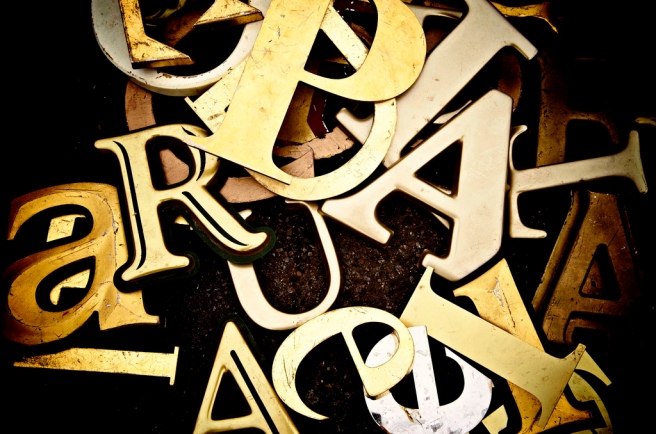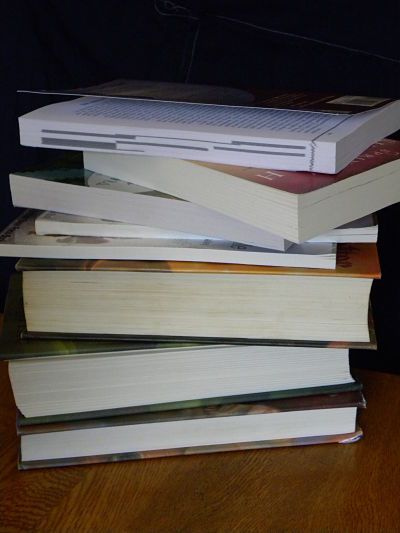BY: COIRE
I acquired my ABI following a surgery to remove a brain tumour ten months ago. The global neurological fallout from my brain injury has been extensive. As the one-year anniversary of my surgery approaches, I thought I would share my thoughts on literacy in response to Shireen Jeejeebhoy’s posts on the subject of trying to regain her love of reading.
Shireen’s posts got me thinking how inundated I am with the cacophony of letters which are part of words that have meaning in relationship to signs, food, location, businesses, pill bottles and cereal boxes. For me, these words populate my vision and are constantly demanding attention, yelling to be recognized and have meaning extrapolated from them.
Words are like the faces of friends I used to know but can no longer recognize. I seem to be unable to place them even though I’m continually on the verge of recognizing them, the meaning on the tip of my tongue, if I just look long enough, it will all come tumbling back to me.

Words – I think of all the hours we spent together growing up, the hours I spent practicing their loops and lines, the time I etched them in the black paint under the train tracks by the river high on marijuana and Allen Ginsberg, how in the empty space between letters they seemed to embrace the entirety of my young world, reckless and immortal, how joy and health was something I carried haphazardly in my pocket with a lighter, paper and some lint, its origin never questioned, its source endless. It seemed that words were an inherent part of the magic of existence.
The time after my surgery is stark and still painfully clear how difficult it is being an illiterate adult. Since then, I have done a lot of work to get back to reading. And like many of us who are reading these blogs, there are moments of successes and triumph. But the triumph is dulled by the weight of loss, the scope too large to see at one time, like a panorama picture of loss.

Things that have helped me: I try and remove all words and letters from my view when I don’t have the energy to work on them. I remove the newspaper from the table, when I sit there, lists on the desk. I don’t know if it’s like this for anyone else, but words in my field of view seem to taunt me to make sense of them, as though they are yelling for my attention and I am unable to block them out.
My family hands me the menu right side up to save me from flipping it around to try to make sense of it. Point to the exact place I need to sign on a form. I have been working on compensation strategies with the therapists that have helped hugely. Practicing scanning and flash cards, reading easy books to my young daughter. And also trying to enjoy young adult novels I already know or have read before or have listened to on tape. There is a great dyslexic font that has helped me on the computer which is free , easy to install and keeps all the letters from somersaulting as much.

I know everyone has different challenges and strengths and I only offer what has helped or is helping me in the off chance it will aid someone else as the literacy blog post helped me, as writing this is a obtainable goal helping me. As I read I focus on the enjoyment of it, reminding myself it’s a language, not unlike a foreign language and only comprehending 60 per cent or so is fine. This emphasis on enjoyment and not on comprehension helps me engage in an act that used to bring me enjoyment and now still does, most of the time.
Filed under: For the Love of Reading Tagged: dyslexie font, literacy, Reading, Shireen Jeejeebhoy
![]()
Source: BIST Blog




